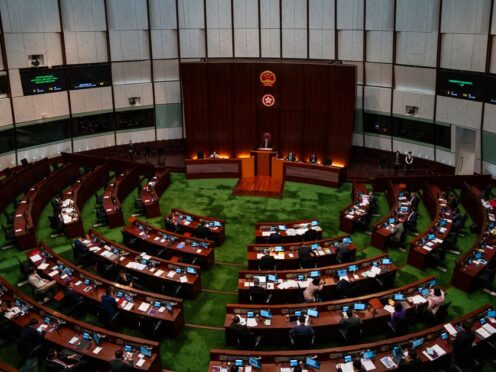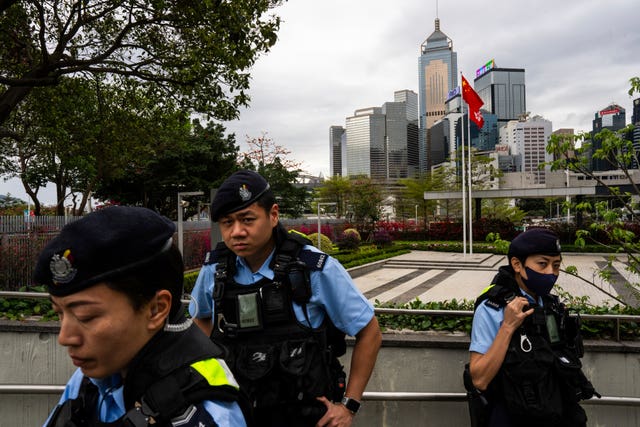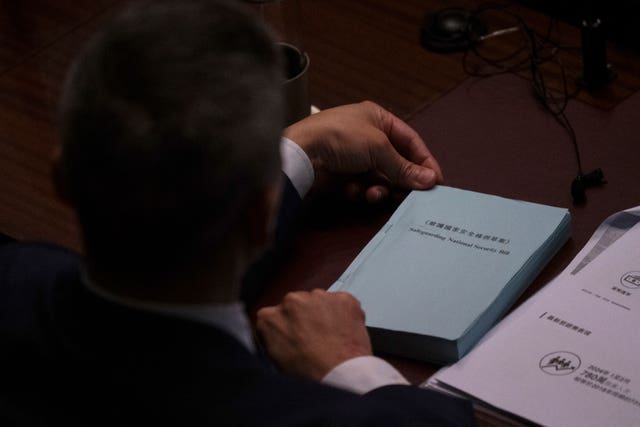
Hong Kong lawmakers have passed a national security law that grants the government more power to quash dissent.
The legislature passed the Safeguarding National Security Law during a special session on Tuesday.
It comes on top of a similar law imposed by Beijing four years ago, which has largely silenced opposition voices in the financial hub.
Hong Kong’s Legislative Council, which is packed with Beijing loyalists following an electoral overhaul, expedited the process.
Since the Bill was unveiled on March 8, a committee held daily meetings for a week following an appeal by Hong Kong leader John Lee to push the law through “at full speed”.

The law threatens stringent penalties for a wide range of actions which authorities call threats to national security, with the most severe — including treason and insurrection — punishable by life imprisonment.
Lesser offences, including the possession of seditious publications, could lead to several years in jail. Some provisions allow criminal prosecutions for acts committed anywhere in the world.
After the vote, Mr Lee announced at the council’s chamber that the law will take effect on Saturday.
Legislative Council President Andrew Leung said he believed all lawmakers were honoured to have taken part in this “historic mission”.
“I fully agree with what the chief executive said: the sooner the legislation is completed, the sooner national security will be safeguarded,” he said.
Critics said the new law will further erode civil liberties that Beijing promised to preserve for 50 years when the former British colony returned to Chinese rule in 1997.
Hong Kong’s political scene has changed dramatically since the massive 2019 street protests that challenged China’s rule over the semi-autonomous territory.
Many leading activists have been prosecuted while others sought refuge abroad. Influential pro-democracy media such as Apple Daily and Stand News have closed.
The crackdown prompted an exodus of disillusioned young professionals and middle-class families to the US, Britain, Canada and Taiwan.
Hong Kong’s mini-constitution, the Basic Law, requires the city to enact a home-grown national security law.

A previous attempt in 2003 sparked a massive street protest that drew half a million people, and forced the legislation to be shelved. Such protests against the current Bill were absent largely due to the chilling effect of the existing security law.
Both Chinese and Hong Kong governments say the Beijing-imposed law restored stability after the 2019 protests.
Officials insist the new security law balances security with safeguarding rights and freedoms. The city government said it is needed to prevent a recurrence of the protests and that it will only affect “an extremely small minority” of disloyal residents.
The measure targets espionage, disclosing state secrets, and “colluding with external forces” to commit illegal acts, among others.
Its provisions include tougher penalties for people convicted of endangering national security by certain acts if they are also found to be working with foreign governments or organisations to do so.
Those who damage public infrastructure with the intent to endanger national security could be jailed for 20 years or, if they colluded with external forces, for life. In 2019, protesters occupied Hong Kong’s airport and vandalised railway stations.
Business people and journalists have expressed fears that a broad law against disclosure of state secrets and foreign interference will affect their day-to-day work.
Observers are closely watching to see if the authorities will extend enforcement to other professional sectors and its implications on liberties for Hong Kongers.

Enjoy the convenience of having The Sunday Post delivered as a digital ePaper straight to your smartphone, tablet or computer.
Subscribe for only £5.49 a month and enjoy all the benefits of the printed paper as a digital replica.
Subscribe